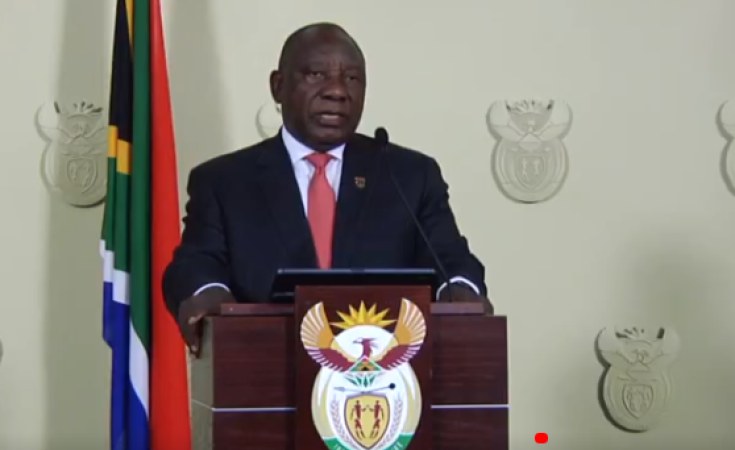Cape Town — South Africa's President Cyril Ramaphosa has announced that a "lockdown" forcing most citizens to stay at home for three weeks will be imposed on the country from midnight on Thursday, March 26.
He told the country in a nationwide broadcast that the country needed to "urgently and dramatically" escalate its response to prevent novel coronavirus infections from escalating from a few hundred at present to tens of thousands in the next few days, and hundreds of thousands in the coming weeks.
"This is extremely dangerous for a population like ours, with a large number of people with suppressed immunity because of HIV and TB, and high levels of poverty and malnutrition," he said.
People would be allowed to leave their homes only to buy medical supplies and food. Health workers, emergency service workers and police and security forces would be exempted from the lockdown.
"All shops and businesses will be closed, except for pharmacies, laboratories, banks, essential financial and payment services, including the Johannesburg Stock Exchange, supermarkets, petrol stations and health care providers."
A solidarity fund, chaired by Gloria Serobe, to care for those vulnerable patients affected by COVID-19 is being established at www.solidarityfund.co.za. The govenmment seeded the fund with R150-million, while two of South Africa's wealthiest families, the Oppenheimer and Rupert families, paid R1-billion each into the new fund. It will be administered by "a reputable team", Ramaphosa said.
He also announced a range of economic measures to help "cushion" companies and individuals from the economic difficulties the shutdown would create.
There would be a safety net for the informal economic sector, and assistance for "vulnerable" firms.
He said the development of the disease in other countries and South Africa's own modelling showed that immediate action was needed to prevent "a human catastrophe of enormous proportions.
"I am concerned that a rapid rise in infections will stretch our health services beyond what we can manage and many people will not be able to access the care they need.
"We must therefore do everything within our means to reduce the overall number of infections and to delay the spread of infection over a longer period – what is known as flattening the curve of infections."
Read the full statement here; this report has been edited and added to since first publication.


